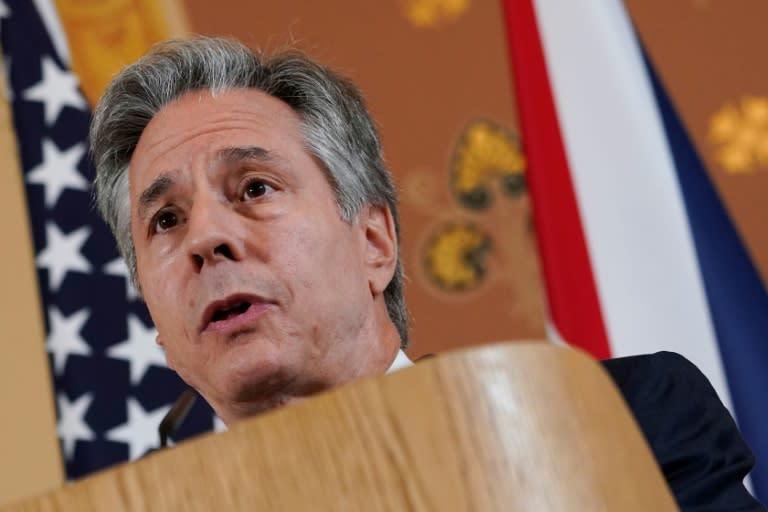US urges Israel to make changes after US activist killed in W. Bank

Top US officials on Tuesday urged Israel to make changes to its operations in the occupied West Bank after the military acknowledged its fire likely killed an American activist there.
US President Joe Biden said he thought the killing of Aysenur Ezgi Eygi was an "accident", but both Secretary of State Antony Blinken and Pentagon chief Lloyd Austin called it "unprovoked and unjustified".
After an initially measured response to Eygi's death on Friday, pending a fact-finding exercise, Blinken said the United States would raise it at senior levels with its key ally.
The investigation, and eyewitness accounts, make clear "that her killing was both unprovoked and unjustified", Blinken told reporters on a visit to London.
"No one should be shot and killed for attending a protest," he said.
"In our judgement, Israeli security forces need to make some fundamental changes in the way that they operate in the West Bank, including changes to their rules of engagement.
"We have the second American citizen killed at the hands of Israeli security forces. It's not acceptable. It has to change."
US Defence Secretary Lloyd Austin spoke with his Israeli counterpart Yoav Gallant on Tuesday, urging him to "reexamine the (Israeli military's) rules of engagement while operating in the West Bank," according to a readout of the call from the Pentagon.
But Biden told reporters that the killing appeared to have been an accident.
"Apparently it was an accident -- it ricocheted off the ground, and she got hit by accident," Biden said, without elaborating.
Eygi's partner Hamid Ali disputed that account, saying in a statement that "this was no accident and her killers must be held accountable."
- 'Wholly inadequate' -
Eygi, who was 26 and also held Turkish citizenship, was killed as she attended the site of weekly demonstrations against Israeli settlements, which are illegal under international law but supported by right-wing members of Prime Minister Benjamin Netanyahu's government.
The Israeli military said it had found that it was "highly likely that she was hit indirectly and unintentionally by IDF (Israeli army) fire".
It added that the fire "was not aimed at her, but aimed at the key instigator of the riot".
It said Eygi was killed "during a violent riot in which dozens of Palestinian suspects burned tyres and hurled rocks towards security forces at the Beita Junction".
But Eygi's family rejected the military's version of events and called its preliminary inquiry "wholly inadequate".
"She was taking shelter in an olive grove when she was shot in the head and killed by a bullet from an Israeli soldier," they said in a statement.
"This cannot be misconstrued as anything other except a deliberate, targeted and precise attack by the military against an unarmed civilian."
- Ceasefire push -
Eygi was a member of the International Solidarity Movement (ISM), a pro-Palestinian organisation.
On Saturday it dismissed claims that ISM activists threw rocks at Israeli forces as "false" and said the demonstration was peaceful.
The United Nations' rights office had earlier said Israeli forces killed Eygi with a "shot in the head".
The mayor of Beita, the Palestinian official news agency Wafa and Eygi's family also reported that Israeli soldiers killed her.
Turkey said she was killed by "Israeli occupation soldiers", with President Recep Tayyip Erdogan -- a fierce critic of Israel -- condemning Israel as "barbaric".
The United States is the crucial supporter of Israel, providing billions of dollars in weapons and diplomatic support.
It has maintained its support despite concern over the deaths of US citizens.
Blinken also has been at the forefront of efforts to seek a ceasefire in the 11-month war in Gaza.
He acknowledged that "very hard" differences remained, but said that all sides would benefit from a deal that would "turn down the temperature" in Gaza.
"It's clearly in Israel's interest," he said.
burs-sct-wd/lb
